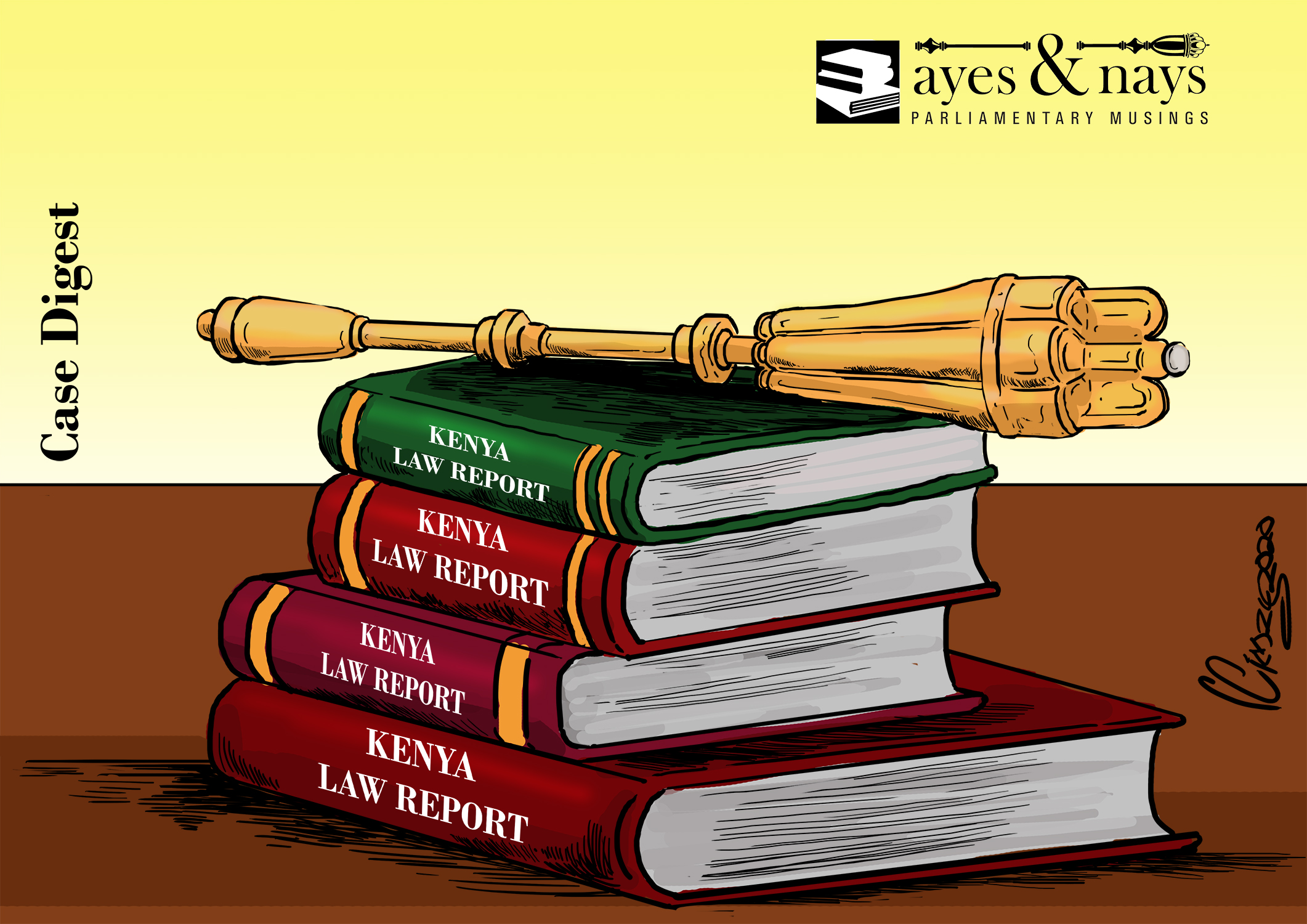
In Douglas Bundi Kirimi v Joseph Kaberia Arimba, Speaker County Assembly of Meru & 3 others [2018] eKLR (Constitutional Reference 26 of 2017) the Petitioner had sought the following orders:
a) A declaration that Standing Orders 4 and 14 of the County Assembly of Meru Standing Orders are in contravention with Section 9 and 14 of the County Governments Act and Sections 178 of the Constitution and to that extent unconstitutional and ultra-vires
b) A declaration that the substantive office of the Deputy Speaker of the County Assembly of Meru as spelt out in the standing orders does not exist in any law known in Kenya and as such any such positions held any individual in the said Assembly be declared a nullity.
c) A declaration that the creation of the office of the Deputy Speaker in the County Assembly of Meru is a nullity ab-initio.
d) A declaration that the privileges enjoyed by the interested party courtesy of his purported position of the Deputy Speaker of the County Assembly of Meru be forthwith withdrawn and quashed.
e) The court to issue any other orders it deems just in the circumstances.
f) Costs be provided.
F. Gikonyo, J, held in para. 18 as follows-
[18] Coming back to this case, standing order 14 proclaims that it is giving effect to article 178(2) (b) of the Constitution. It, however, designates the person elected under article 178(2) (b) as Deputy Speaker. My view and I so find, is that the person elected under article 178(2) (b) of the Constitution is speaker for that particular time. The designation of the said person as Deputy Speaker is therefore problematic and in violation of the Constitution and the County Governments Act. Second, the standing order 14 tends to create the position of deputy speaker with procedure for appointment of a deputy speaker in the event of a vacancy thereof. I think the drafters and the assembly were trying to borrow from the provisions on speakers and deputy speakers of the House of Parliament discussed above. But, that kind of transportation of provisions of the Constitution is clearly not permitted by the Constitution and cannot be done through legislation or standing order especially in a case such as this where there is no lacunae in the Constitution. Under article 178, it bears repeating, the only other person who will otherwise perform the functions of the office of the speaker is the person who is elected in accordance with article 178(2) (b) of the Constitution. My understanding of the Constitution is that article 178 of the Constitution does not envisage a deputy speaker to perform the duties or functions of the speaker. The County Government Act, which is also perfectly in line with the Constitution, does not envisage or authorize creation of the office of Deputy Speaker for County Assembly.
–
ayes & nays
